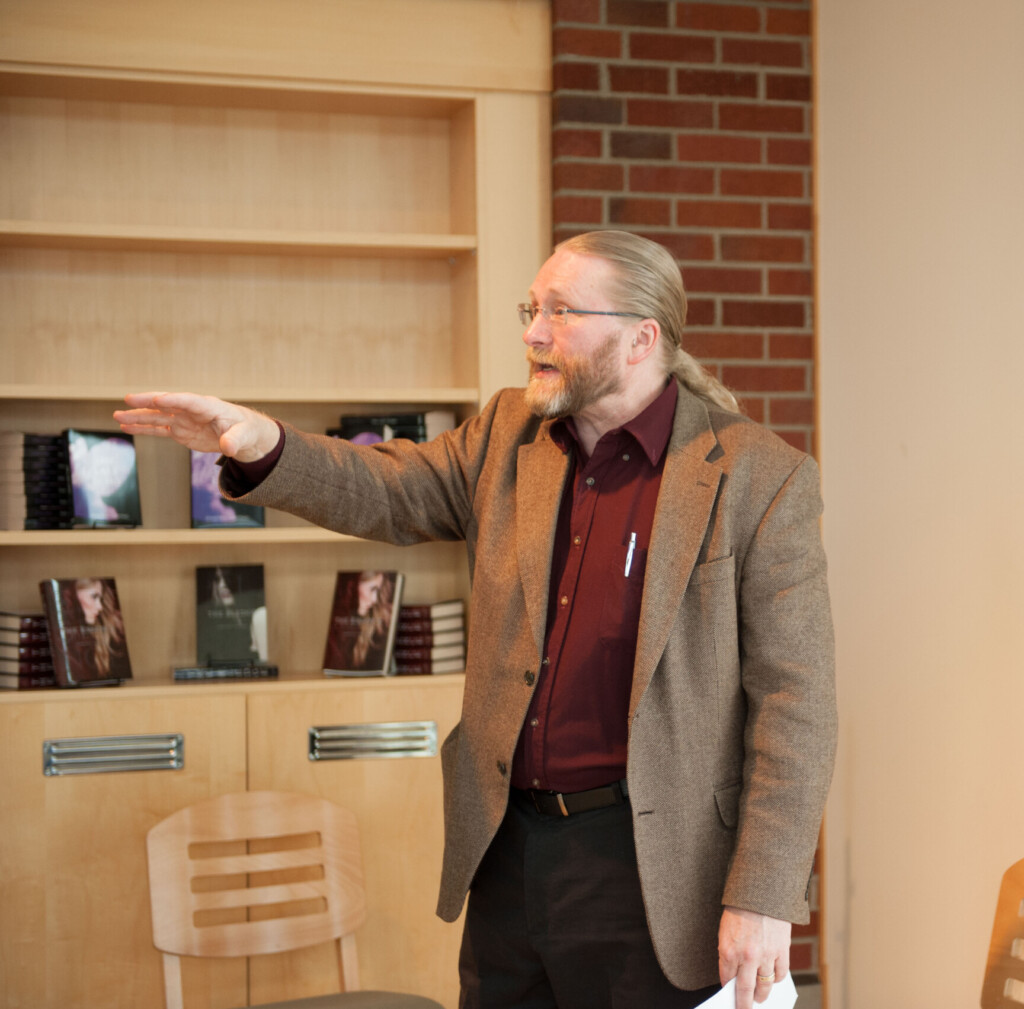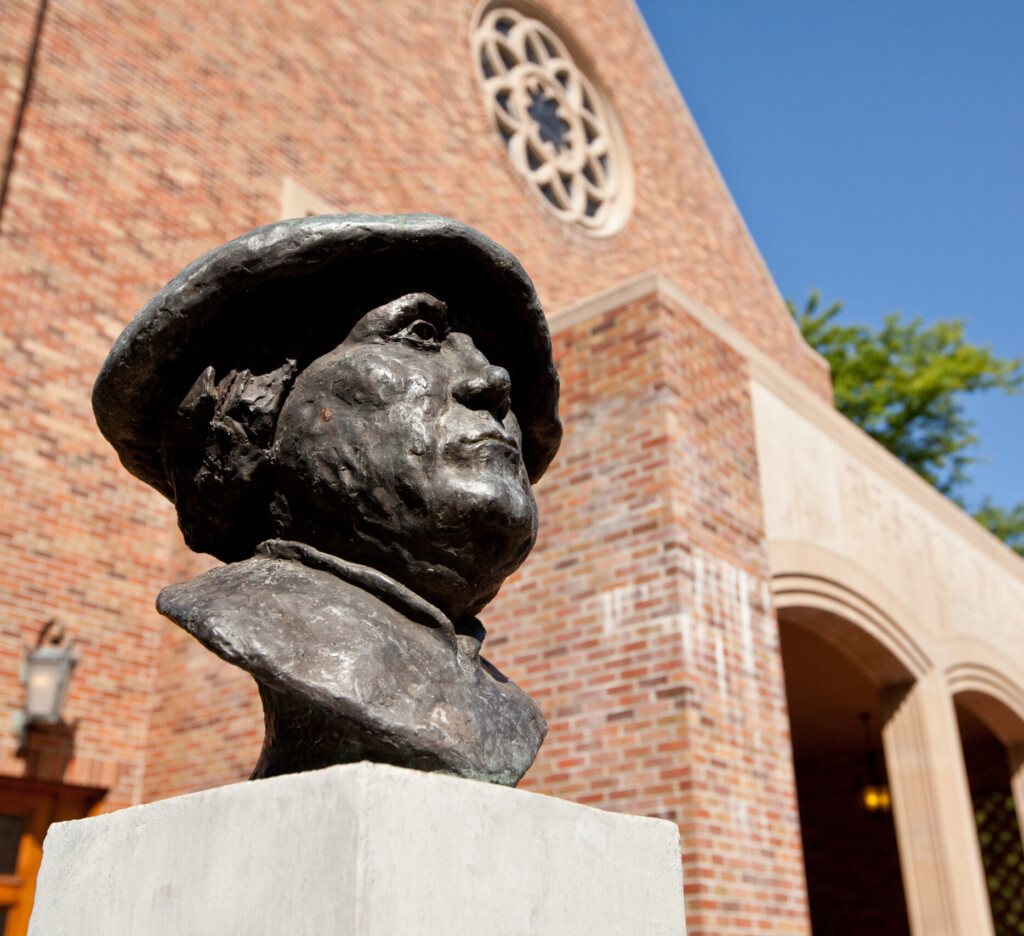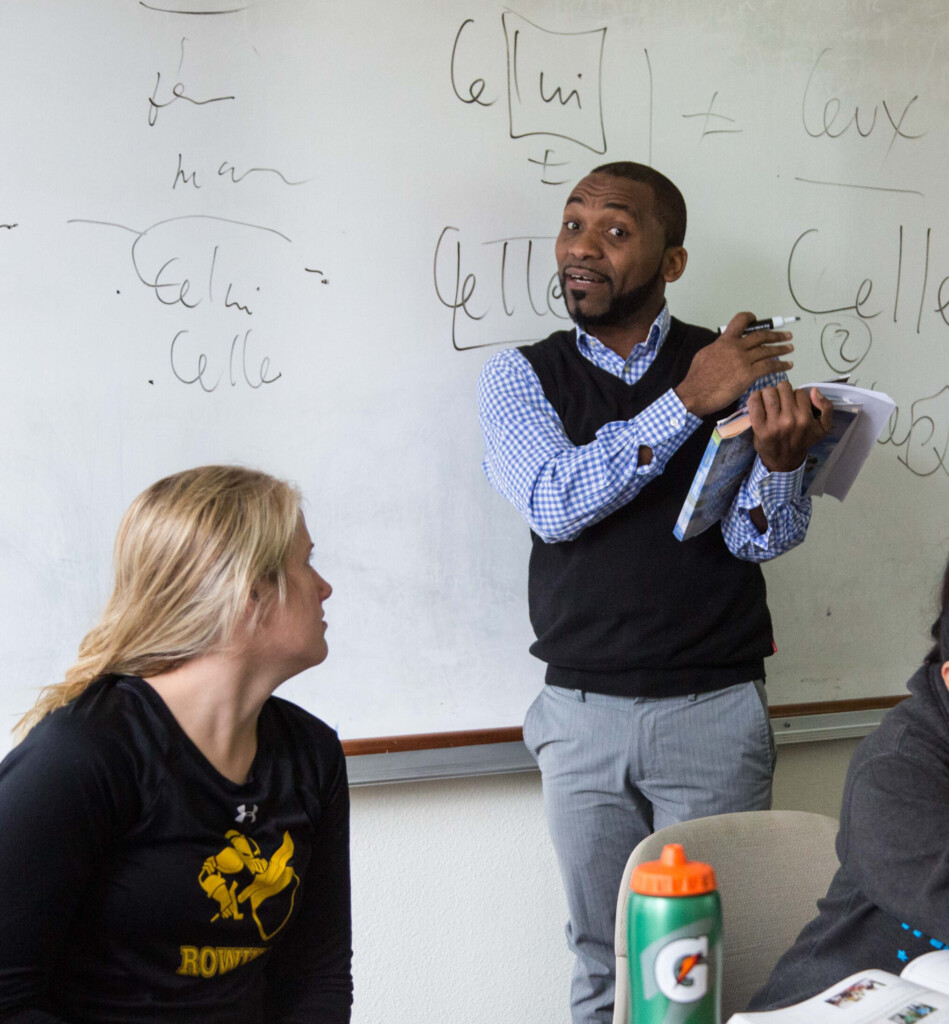Ebenezer Scrooge, Martin Luther, and the Power of the Past and of Language
By Eric Nelson
Originally published in 2012
There’s something strange that goes on with texts, readers, writers, and time. I mean, look at you: there you are, reading this now, in the spring of 2012. And here I am, in your past, and it’s not even (technically) winter 2011. I’m sitting next to the Christmas tree (as yet untrimmed), finals and graded papers drifting around the sofa like flocking on the floor, typing away at my Prism contribution and trying to finish up my fall duties as Chair before the holidays have actually passed. Strange, isn’t it? There you aren’t, and here I am; but when Prism eventually gets published – poof! – our places will be reversed. I will not be there, but you and this text will be.
Texts are powerful and mysterious creations. They can circumvent and change time. Through even this modest text, the writers in this volume of Prism will reach out to you from your past to exercise a certain power over your present. We will command your attention, insert our thoughts into yours, and take up your time. We may even change your future. You never know. And even if you choose to leave Prism lying around to read some other day, that’s okay: we’ll be here, waiting. The past will still have something to say.
The potential that lies in the past appears at this (that is, my) time of year in Charles Dickens’ famous story, A Christmas Carol, in which a miserly and miserable Ebenezer Scrooge is visited by the spirits of Christmas Past, Present, and Future. Of these, the most powerful is the Spirit of Christmas Past, who sets the groundwork for Ebenezer’s eventual transformation.

Not that he was all that interested, at least in the beginning, in changing. Scrooge was mired in his understanding of his past and in his ways, and not at all happy about being forced into a review of them. But an alternative to his dismal future was always there, lying around in the past like an old copy of Prism, waiting for him to re-enter and claim it. Once he did, Ebenezer found his better future not by changing the parts of his past that he understood, but in being changed by the parts that he hadn’t. Scrooge couldn’t change his past, but it could change him, and through it Scrooge found the means to change his present and his future.

Luther had an experience similar to Ebenezer’s, you know. And, like Ebenezer’s, it changed his future – and the world. Learning Greek guided Luther back to revisit the texts and ideas that shackled his present to a foregone conclusion. What he discovered, there, was that these ideas were not determined by truths that he could not come to grips with: rather, he found that they had been imposed by the limitations of his own language. The Reformation was the result.
The original language of a text harbors, ironically, its greatest potential and greatest vulnerability. Languages change over time, and it may soon take considerable effort and study to understand an original text. Translation is an incomplete, and temporary, solution. Each translation becomes a new text. Each loses and alters elements of the original through the medium of a different language in the hands of a different author. Without the ability to read a text in its original language, the original is lost to us.
Luther’s experience, and his realization of the ongoing role of languages in liberating our past, enabling our present, and reshaping our future, had a profound effect upon how he insisted languages should be taught at a university. Luther valued languages for their present and future use in our practical business and in the pursuit of what we call, in the PLU mission statement, “service and care” in the world. But his ideas of vocation gave this language study a particularly Lutheran twist: language study was not about being enabled to transform the world as much as it was a part of being transformed for the world. Learning the language of others takes us out of our own frame of reference and places us into theirs, enabling us to understand, serve, and care for others where and as they are, not where and as we want them to be, or as they make themselves available to us.
However, according to Luther, languages taught only for such purposes are dangerously incomplete at the university. For what we call, in the PLU mission statement, “thoughtful inquiry and leadership,” languages taught at the university also needed to enable students and scholars to engage in an ongoing critical examination of, and dialogue with, the original texts from the past that have shaped and influenced our –and others’– present. Without this, the university only produces what Luther called “unlettered preachers of the faith”: well-intentioned and well-versed purveyors of ideas that they have accepted but have no means to investigate or to transcend. Luther’s insight applies to articles of faith that are secular as well as sacred, and to those which are others’ as well as our own. Without this ability we remain, like Jacob Marley, shackled to a version of the past and doomed to drag its chains into our future, pausing here and there to shake them angrily at others and at the world around us.
These two orientations for language study, one future-present and the other past-present, are both crucial and distinctive in Lutheran Higher Education. And you can see them at work in the two remarkable faculty-student research projects in the Department of Languages and Literatures, “Chai-na” and “Jean-Jacques Rousseau, Reader of Gabrielle Suchon?”, which have been generously funded by Kelmer-Roe fellowships and the Wang Center for Global Education.
And what about you? Has the learning of a language somehow surprised and changed your life? Perhaps learning a language changed the way you understood your own past, culture, or ideas. Perhaps it provided the means to bring you into contact with people who took you out of your own framework and broadened your perspective. And maybe learning a language has taken you into an unforeseen future. If so, we’d like to hear about it. To echo Dean Albrecht, please send us your stories! No matter how short or long, they will become texts for us to use as we develop our programs and communicate what languages can do for our present students in the future. We also hope to share some of your stories on our web pages and in our other publications. So tell us about your own language past and present, and help shape the future of languages at PLU.



